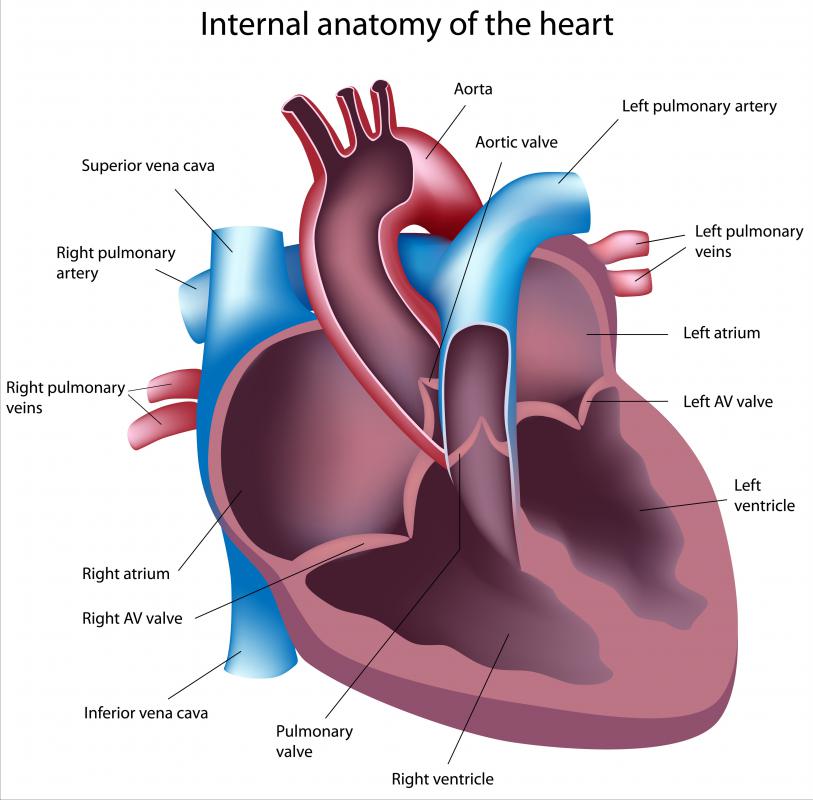At WiseGEEK, we're committed to delivering accurate, trustworthy information. Our expert-authored content is rigorously fact-checked and sourced from credible authorities. Discover how we uphold the highest standards in providing you with reliable knowledge.
What are the Types of Fibrillation?
Fibrillation, also referred to as cardiac arrhythmia, is a naturally occurring phenomenon of the heart that can be a serious condition. During fibrillation, the heart beats irregularly and rapidly, with unsynchronized contractions. A fibrillation falls under one of two categories: an atrial fibrillation or a ventricular fibrillation.
Patients with atrial fibrillation experience the condition throughout their lifetime, though it can be treated with anticoagulation medications. Other treatments may include surgery and electrical cardioversion. The condition specifically affects the atria, which are the two upper chambers of the heart. With atrial fibrillation, the electrical impulses that normally send signals to the heart are disorganized. This leads to the irregular heartbeats the person experiences.

Atrial fibrillation occurs more often in the elderly, though it can occur at any age. In addition, it is possible for a person to alternate between having a normal heart rhythm and experiencing atrial fibrillation. There usually are no symptoms associated with atrial fibrillation, though a person may experience chest pains, fainting, palpitations, and in more extreme cases, heart failure. A person experiencing atrial fibrillation is also more likely to experience blood clots, which may travel to the brain and the heart.

Cardiac arrest is caused by ventricular fibrillation. Regardless of what it leads to or what it is caused by, ventricular fibrillation is a serious disorder that can quickly lead to death if the situation is not reversed through a process called defibrillation. For this reason, ventricular fibrillation is considered a medical emergency.
A person suffering from ventricular fibrillation has heart muscles that are unable to coordinate themselves with the large chambers, or ventricles, in the heart. This causes the ventricular muscle to twitch and to contract in an unusual manner. As a result, the ventricles do not pump blood to the arteries. If left untreated, the heart will stop working completely. In fact, it only takes a few seconds for the patient’s blood to stop circulating, which will cause the pulse, respiration, and blood pressure to stop.
For the most part, ventricular fibrillation occurs in hearts that are diseased. At the same time, it can occur in hearts that appear to be healthy and strong. For these reasons, researchers are still unsure of the exact cause of the disorder.
AS FEATURED ON:
AS FEATURED ON:
















Discuss this Article
Post your comments